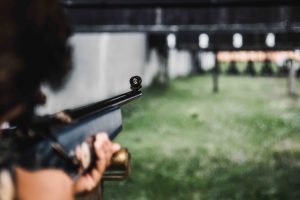 Chicago has been battling gun crime for a long time and legislation is one of the tools available for tackling it. Legislative instrument number 720 ILCS 5/24-1 summarizes the law as it stands today. Nothing demonstrates the complexity of the issues at hand like the regulation of automatic weapons in Chicago. It is not enough to say that possession of such a firearm is illegal; there must also be specific procedures that determine how the courts are going to handle the various cases that come before them. Existing legislation has tended to focus on controlling the sale, possession ,and use of certain weapons in order to prevent or punish criminal behavior.
Chicago has been battling gun crime for a long time and legislation is one of the tools available for tackling it. Legislative instrument number 720 ILCS 5/24-1 summarizes the law as it stands today. Nothing demonstrates the complexity of the issues at hand like the regulation of automatic weapons in Chicago. It is not enough to say that possession of such a firearm is illegal; there must also be specific procedures that determine how the courts are going to handle the various cases that come before them. Existing legislation has tended to focus on controlling the sale, possession ,and use of certain weapons in order to prevent or punish criminal behavior.
For the defense attorneys, this remains a double edged sword. On one hand, a defending attorney is able to challenge the prosecution at any of the detailed procedures for proving criminality. However, the prosecutor can also return the favor by selecting any of the following for attack:
- Purchase
- Possession
- Usage
In order to simplify the verification process, the state has introduced a F.O.I.D. card or Firearm Owners Identification. This means that the law enforcement agencies are able to make a quick discretionary decision as to whether to pursue a particular infringement or ignore it.
Qualifications for Possession and Consequences of Unauthorized Possession
There are citizenship and residency requirements for some of the most harmful weaponry in Chicago. Criminal history may also be taken into consideration. It does help that F.O.I.D. cards are issued by the Illinois State Police, who will undertake background checks before clearance. For the defense attorney, it is worth noting that Chicago exempts those non-residents who are ordinarily entitled to hold a firearm in their home state. On the other hand, such an exemption also creates problems for the prosecutor because they must first prove residency status before even pursuing the principle charge of illegal possession.
There are other less obvious qualifications such as the age limit (at least 21 years of age) and attendance at a 16-hour training course. There are cases where the law enforcement agencies have been able to successfully object to an application for F.O.I.D.. The law is rather vague on this point because the objection can be based on reasonable suspicions about public and personal safety. The oversight function for this refusal is undertaken by the Concealed Carry Licensing Review Board. There are some police directives to guide law enforcement officers. The standard test is the preponderance of evidence, which is much lower than the reasonable doubt of the criminal prosecution.
Most areas do not allow open carry. Transportation is deemed legal only if the firearm is unloaded and enclosed within a case. Some exemptions may apply when the firearm is broken down or inaccessible. These are critical matters for the defense attorney because they can determine whether or not the case proceeds to trial. It is particularly important to take note of the waiting period between purchase and possession (72 hours for a hand gun and 24 hours for a shotgun). This can be critical if the alleged criminality happened within the waiting period. It is important that clients are advised about the importance of reporting lost and destroyed firearms to the police, lest they become liable for crimes that they are used to commit.
Rules of Evidence
The firearm is the most important piece of evidence (see the Aguilar case). The prosecutor will try to link the defendant using fingerprint technology and even eye witnesses. In most cases the arrest happens in the course of some other investigation. That is why illegal possession of an automatic weapon in Chicago is often an additional offense, with many other principle offenses preceding it. Call David Freidberg attorney at law at 312-560-7100 to get the best representation for your case.
(image courtesy of Antonio Grosz)
 Chicago Criminal Lawyer Blog
Chicago Criminal Lawyer Blog


